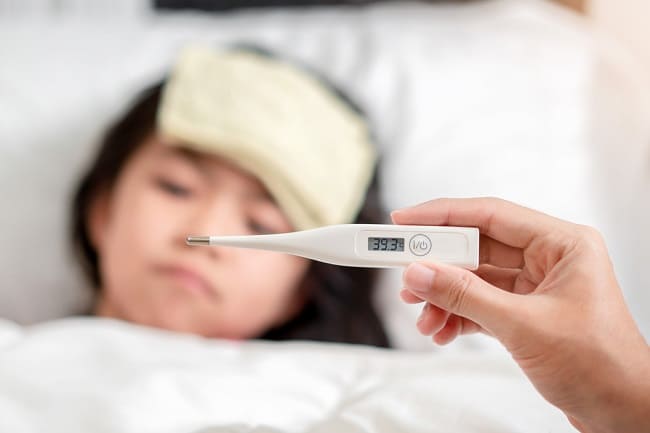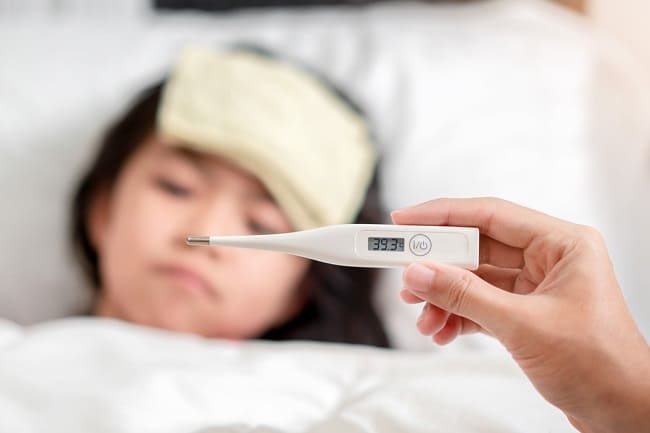Fever up and down in children is a natural thing and often happens. Usually, fever occurs every 4 hours with varying body temperature.
Fever can appear as a natural reaction of the child’s body defense to fight bacterial or viral infections in his body. Generally, a child’s normal body temperature is around 37.4 C. This temperature can vary depending on the child’s activities, especially during the day.

A child can be said to have a fever if his body temperature is above 38ºC. Fever is not always a symptom of a serious illness. However, you still have to be vigilant when this condition is experienced by your little one.
Causes of Fever Up and Down in Children
Basically, fluctuating fevers that occur in children can be caused by certain viral or bacterial infections, such as viruses dengue the cause of dengue fever, or bacterial infection Salmonella typhi the cause of typhoid or typhoid fever.
The thing to note is how high the fever is. Usually, a low-grade fever up to a body temperature of 39°C will resolve on its own within a few days.
However, immediate medical attention is required if the fever is more than 39°C. When it occurs in children aged 6 months to 6 years, a high fever can trigger seizures.
How to Treat Fever Up and Down in Children
There are several ways you can do to deal with a child who has a fever up and down, namely by giving him medicine containing paracetamol or ibuprofen according to the instructions for use on the drug packaging label.
In addition, you can also do some of the tips below when there is a fever that goes up and down in children:
- Give a warm compress on the forehead area.
- Keep the room temperature at a moderate temperature, which is around 20–22°C.
- Give clothes that are light and comfortable.
Not only that, make sure the child is well hydrated, because a high body temperature can make the body lose a lot of fluids. If left unchecked, this can lead to dehydration which can then lead to various other health problems.
If your little one is over 1 year old, give water or drinks that contain electrolytes. The electrolytes in the drink you give serve to maintain the normal function of cells and organs of the human body.
In addition, electrolytes are also easily absorbed by the body so that they can replace body fluids more quickly, especially when a child has a fever.
As a parent, you need to be alert when your child has a fever that goes up and down or a high fever that lasts for 3 days in a row and is accompanied by the following symptoms:
- Rash
- Dehydration
- Frequent vomiting
- Headache
- Stomach ache
- Difficult to wake up when sleeping
- Sluggish
Don’t hesitate to take your child directly to the nearest emergency room or see a doctor immediately, especially if these symptoms are also accompanied by some of the symptoms of COVID-19, such as coughing, runny nose, or shortness of breath.











